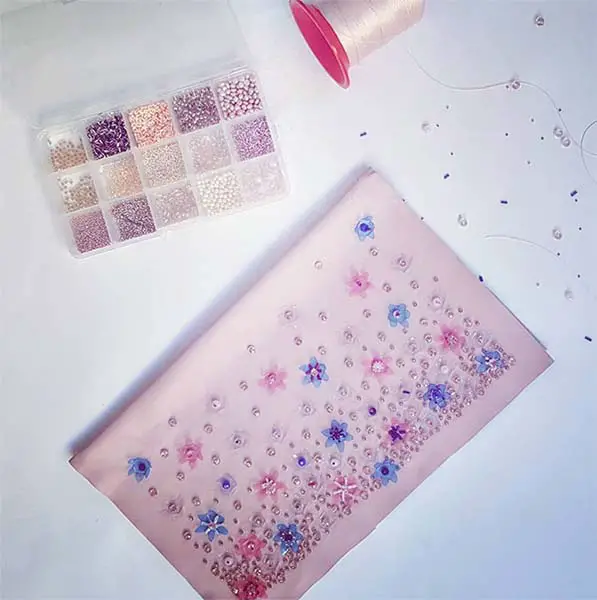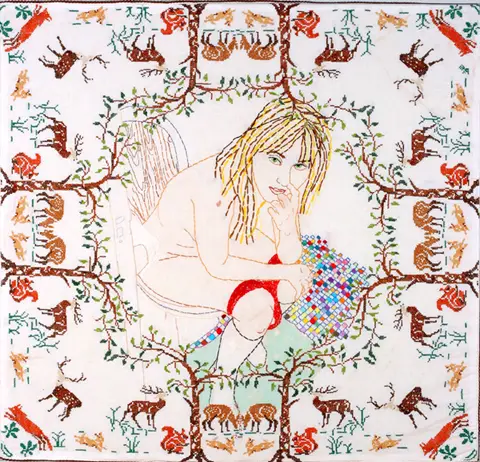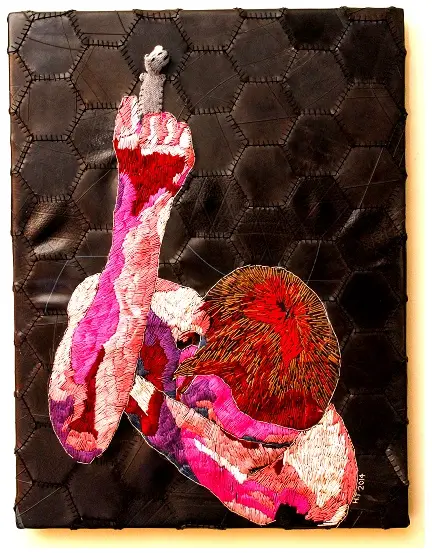Every year, Hand & Lock organizes a competition for the prestigious Prize for Embroidery to promote the use of hand embroidery and to discover emerging embroidery talent. The 2018 brief invited entrants to “celebrate culture, gender and individual heritage in the global atmosphere of transformation.” They were asked to make their work “stand for something bigger than itself conveying a meaningful message relevant to the transient state of the world today.”
London’s Bishopsgate Institute hosted the final judging and award ceremony for the 2018 Hand & Lock Prize for Embroidery.
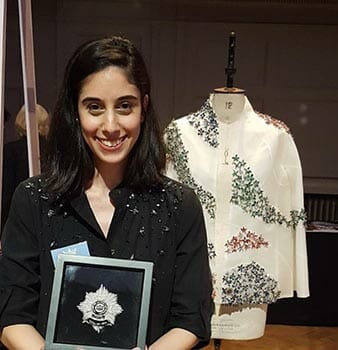
Today we’ll meet the second-place winner in the Textile Open Category.
Name: Shlomit Bela Tawfik
Location: Tel Aviv
Website: www.shlomittawfik.com
The Competition
Describe your Hand & Lock entry and what motivated it:
The motivation for this project was really the Hand and Lock brief. The idea came to me a couple of days after reading the brief because my husband was building a computer from parts at the time. This sent me on a journey of discovery: Where is it all manufactured and where does it end up when we’re done with it?
Often, I found out, these electronics are manufactured in Southeast Asia, marketed and sold in the Western world, and eventually — when a new model comes out — thrown in heaps and mountains ruining the countrysides of the same regions where they were built.
Using old computer hardware, I have created an intricate pattern of beaded flower embroidery. Every petal, every leaf, every stamen is painstakingly made by hand from discarded computers that I took apart. I transformed hard drives, cd readers, motherboards, colourful cables and countless other components into unique flower patterns.
My design is inspired by the topography of rice fields, a characteristic landscape feature in this region. The shape of the coat resembles traditional Southeast Asian clothing, celebrating the cultures that modern manufacturing is sidelining.
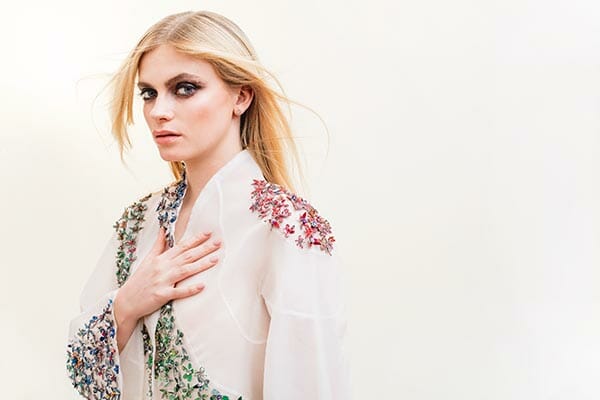
Are there any secrets you can now reveal about your entry?
It was really hard working around the toxicity of the motherboards. The big problem with technological waste is the heavy metals inside not visible to the naked eye. I ended up working for hundreds of hours with a face mask, goggles and gloves.
Want a closer look at how Shlomit made all those flowers? Trust me, you do! Take a look at this video on YouTube; it’s two-and-a-half minutes long. Oh, and there are cats.
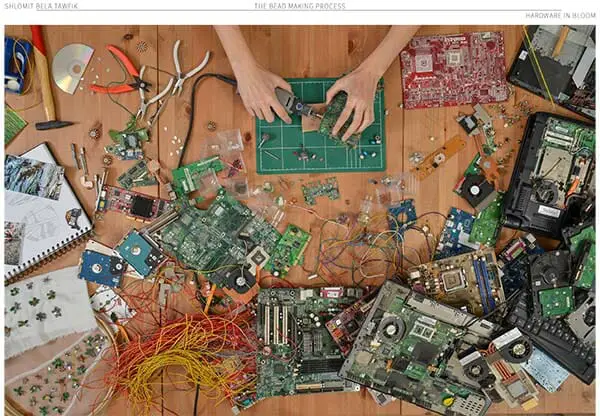
Past
Tell us about your background and how it led you to where you are.
My creative journey is a bit unusual. Instead of going the traditional route and applying to design school, as many of my peers were doing at the time, I decided to go to a technical school for pattern making. After graduating I went on to become a professional pattern maker for Israel’s most prominent bridal designer. There, I fell in love with the intricate embroidery patterns of the wedding gowns, and I found myself gravitating more and more towards the embroidery design aspect of the job. A couple of years later I got the courage to finally study footwear design at night school. During my second year of studies I got an offer to be a designer for an Israeli footwear brand. Two years after that I won a scholarship to study footwear design and management in Marangoni Firenze. There I first learned about the Hand & Lock embroidery competition and a year later – after coming back to Israel – I entered.
When and how did you learn embroidery, and what was your first embroidery project?
I never had any formal training in embroidery. What I know, I learned by watching and by experimenting with different techniques. I was always more interested in bead embroidery than thread embroidery.
My first project was probably a shirt I took from my mother at age 13 and embroidered flowers on.
But my first professional project was at the bridal shop where I worked. We designed the embroidery for a gown locally, sent the fabric and the design for embroidery in India, and got back the embroidered pieces. It was a moment of elation – the first time seeing my own design on a finished piece that someone else was going to wear.
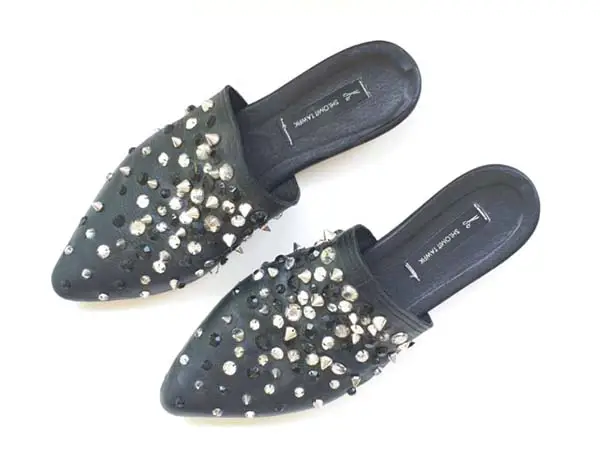
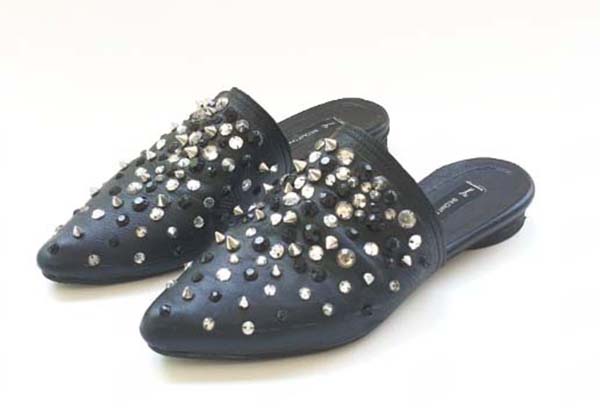
Present
My job in The Funk Files is to interview “pioneers on the embroidery frontier.” That’s you! What is the embroidery frontier, and what does it mean to be a pioneer here?
For me, the frontier is about controlling the whole process – starting from nothing, and creating the entire piece by yourself. From creating the beads, to designing the pattern to assembling the piece. The result is something truly unique – something you created yourself and cannot be copied or recreated. I occasionally enjoy going into a shop, buying some beads and embroidering a small piece. But that’s not what being a pioneer is about. For me, being a pioneer means being innovative. Creating something that is of my own, and that means creating everything in the process.
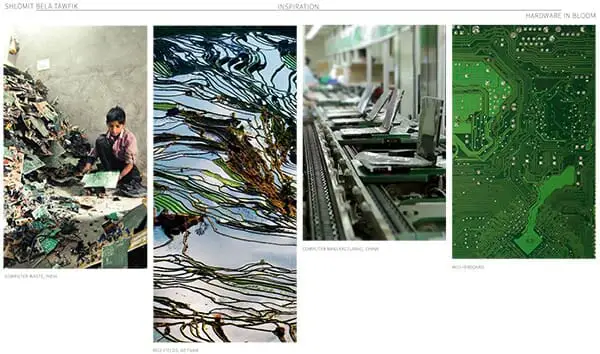
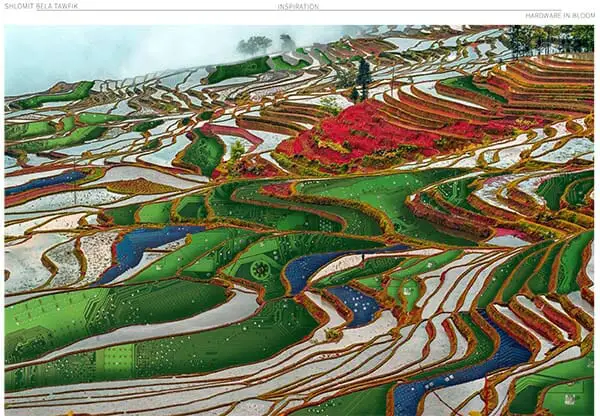
What’s been the biggest surprise of your career and the projects you’ve undertaken?
My biggest surprise was getting my first job designing for a living. Like any creator I was plagued by self doubt. I didn’t feel like my designs were good enough for a professional setting. But that first job gave me the confidence that I have something interesting to say – and something that other people are interested in as well.
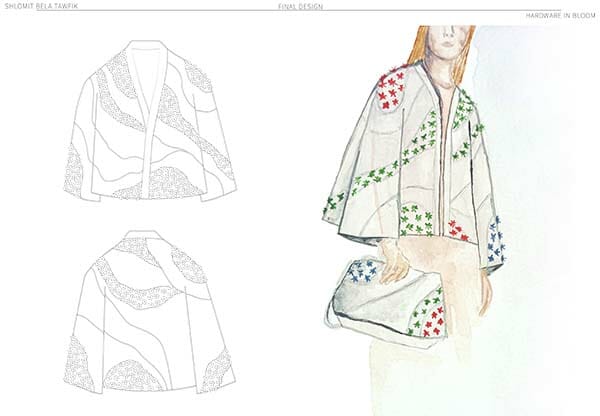
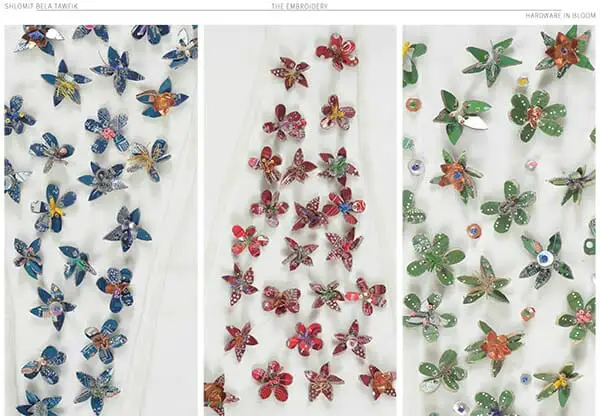
Future
What projects are on the horizon for you?
I’m always experimenting with new materials and new techniques in embroidery. My current project is more chemistry oriented – creating bronze beads and transforming them with controlled corrosion.
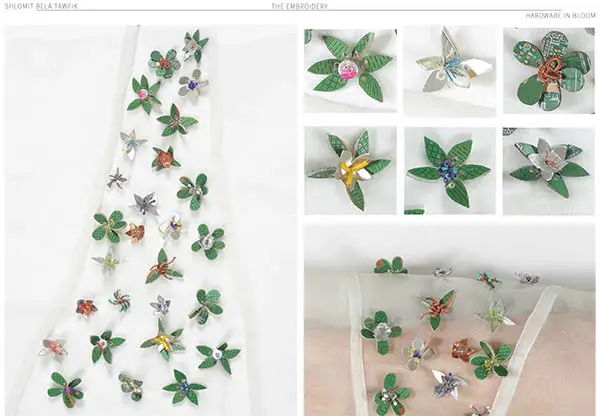
Tip
What one piece of advice would you offer someone looking to expand his/her embroidery skills?
When working on a piece, there is always a temptation to keep going – keep adding, keep iterating, keep changing things. There is moment when the piece is done and will not get any better. Listen to yourself and trust yourself. When it feels done, let it go and move on to your next project.
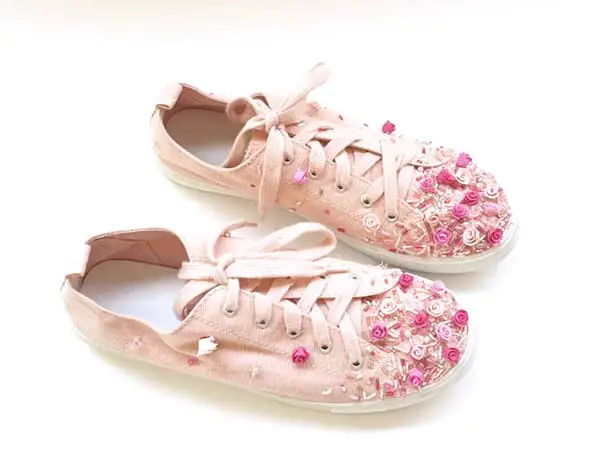
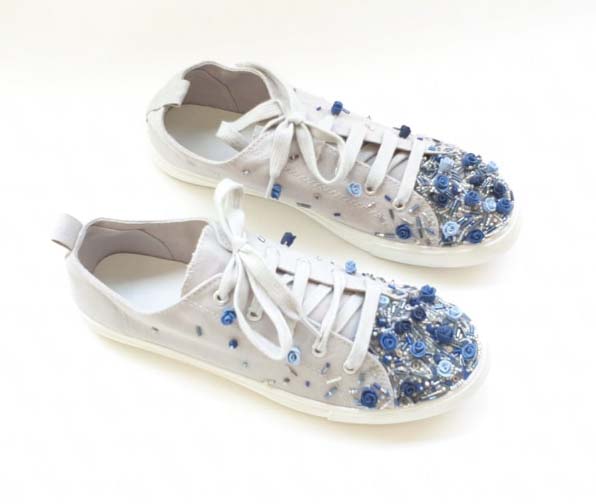
Rapid-fire Round: (Don’t think too hard about these.)
You can work with just one color for the next year. What color do you choose? Black
What stitchable motif would you choose to represent you and your life? Flowers and nature
A book you enjoyed recently: Mademoiselle, by Rhonda Garelick.
You must include something edible in your next piece. What do you use, and how do you incorporate it? Sliced fresh fruits and vegetables, immersed in pvc.
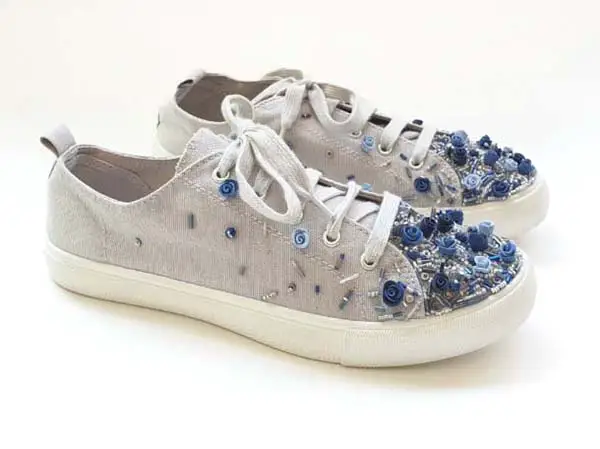
If you were not an artist, what would you be? A cook.
You must create footwear or an accessory for an animal. What is the animal, and what do you create? Hats for my cats.
Favorite material to work with: Anything unexpected.
Describe your dream commission. What and for whom is it? An embroidered footwear line for a luxury brand.
You’ve written a novel in which shoes feature prominently. What is the title of the novel? Wearable Sculptures
